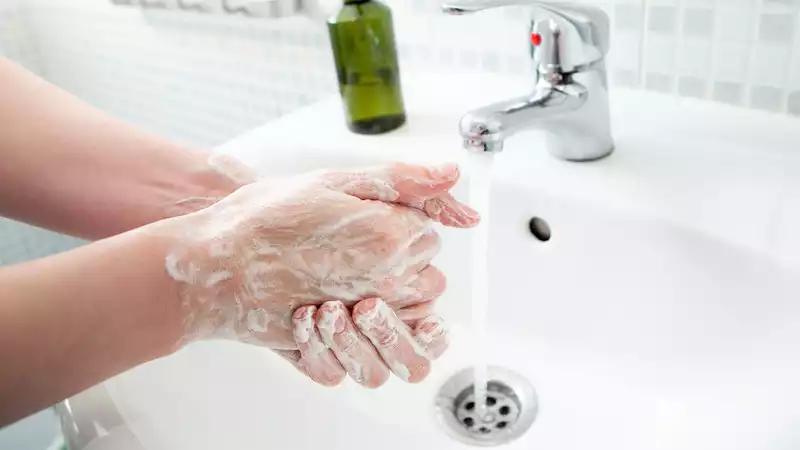As COVID-19 continues to spread throughout the world, knowing and following coronavirus tips is crucial to staying healthy.
Many of these safety tips are common sense precautions. They are all recommended by reputable organizations such as the U.S. Centers for Disease Control and the World Health Organization.
COVID-19 is spreading at a fast pace: as of March 12, more than 127,750 people worldwide and 1,323 in the United States have been confirmed infected with coronavirus. Governments have issued coronavirus travel bans for non-authorized persons leaving 26 European countries (excluding the UK).
If a coronavirus has invaded your area, you may be concerned that you or your loved ones are at risk of contracting this disease. The following are important tips for staying safe and healthy during a coronavirus pandemic.
The CDC recommends washing your hands frequently with soap and water for at least 20 seconds, especially after going out in public, blowing your nose, or coughing or sneezing. Hands should also be washed after using the restroom and before eating.
To make the hand washing time 20 seconds, sing the Happy Birthday song twice. Or sing the chorus of Toto's "Africa" or Fleetwood Mac's "Landslide". There is now a coronavirus hand washing meme based on the Wash Your Lyrics website. You can turn the lyrics of your favorite song into an infographic timed to 20 seconds:
If soap and water are not available, use a hand sanitizer containing at least 60% alcohol. Cover the entire surface of the hand and rub together until it feels dry.
Do not touch your eyes, nose, or mouth with unwashed hands.
When coughing or sneezing, cover your nose and mouth with a tissue and discard the tissue when finished. If a tissue is not available, cough or sneeze into your elbow or sleeve.
(Note: Sneezing is not a common symptom of COVID-19, but it is better to develop healthy habits.)
The primary route of transmission of coronaviruses is through respiratory droplet transmission. A person either inhales droplets or touches a surface with droplets on it. It is not known how long droplets of new coronaviruses remain infectious, but according to the WHO, similar coronaviruses can survive on surfaces for hours to days, depending on the environment. For more information on this, see this guide by LiveScience.
Avoid close contact with sick people; the CDC recommends keeping a distance of 2 meters from someone who is coughing or sneezing. When someone coughs or sneezes, small droplets of liquid are dispersed into the air. If you are too close, you may inhale the droplets.
Get enough sleep. Exercise. Drink enough water. Eat nutritious foods. Take vitamins.
Even if the gym is closed, you can still exercise at home. Download the best workout app or use the best home gym equipment to work up a sweat.
Try to eat fresh foods. Also, use the best food delivery apps to order from your favorite restaurants.
And good health habits include good mental health. Social distancing can lead to loneliness and depression. Check in with friends on group Facetime or watch Netflix with friends remotely.
Clean and disinfect surfaces that are frequently touched at home and at work, including computers, phones, doorknobs, switches, handles, bedside tables, bathroom sinks, toilets, counters, and toys.
If available, Clorox wipes are probably your best bet. For more information on how to clean your cell phone, click here.
Experts recommend stocking up on a 30-day supply of prescription medications and keeping other health supplies on hand, such as pain relievers, stomach and cough medicines, cold remedies, electrolyte-containing fluids, and vitamins. Also replenish cleaning supplies (bleach, laundry detergent, etc.) and isopropyl rubbing alcohol; according to the EPA (U.S. Environmental Protection Agency), the best cleaning products for coronavirus protection are.
Also consider stockpiling a two-week supply of food. It does not have to be just canned beans and rice. Electricity is still available, so frozen food can be obtained. There are also food delivery apps, grocery delivery services, and meal kit delivery services. Many of these services have contactless delivery, meaning you can pick up your order right outside your door.
For a complete coronavirus checklist of what to buy for safety, click here.
As of this writing, the CDC and World Health Organization (WHO) are still debating whether to recommend wearing masks for healthy citizens to prevent infection. So should you wear a mask? That is a personal choice. Health care workers should not buy N95 medical grade just because they need it to treat a coronavirus patient. However, if you are interested in a DIY project, you can learn how to make your own face mask at home.
Also, know how to clean a face mask to ensure that it is effective in protecting against illness.
If you are not feeling well, be extra vigilant and protect others from infection.
The most common coronavirus symptoms are fever and dry cough, followed by fatigue and shortness of breath. If these symptoms develop, stay home and rest. Do not go to work, do not use public transportation, do not go to the grocery store, do not take children to school. Contact your employer and figure out how best to manage your work responsibilities. Click here for the best home office technology and equipment for telecommuting.
If you become ill, contact a health care professional for advice and treatment options.
.









Comments